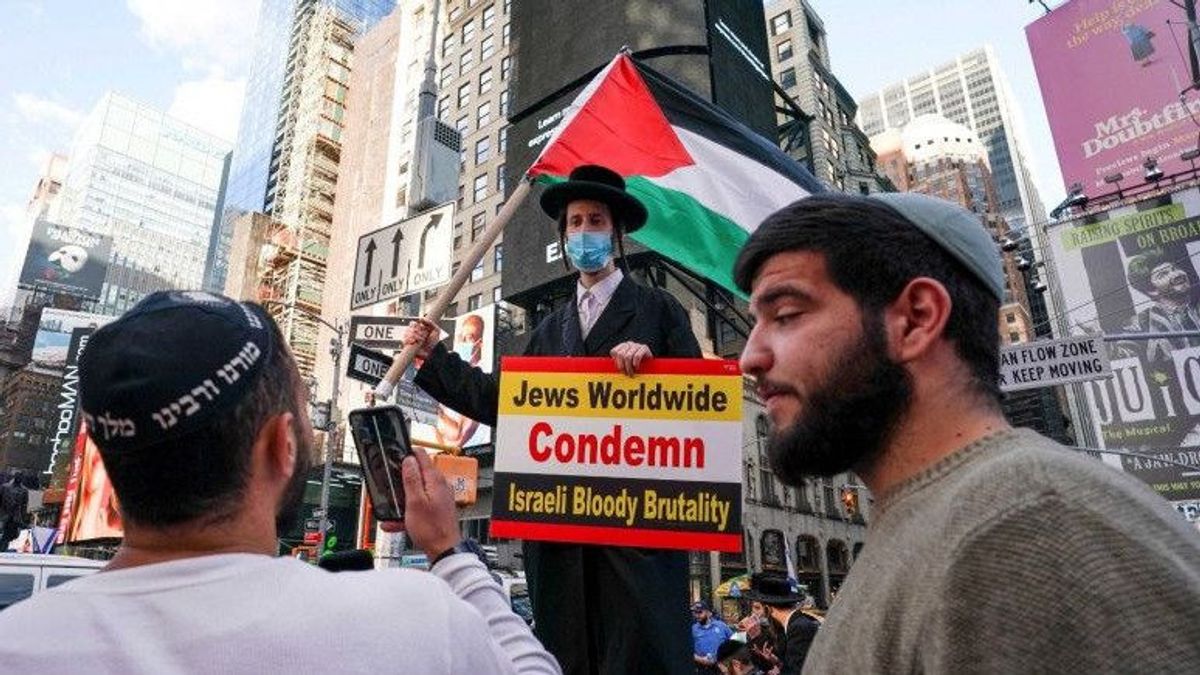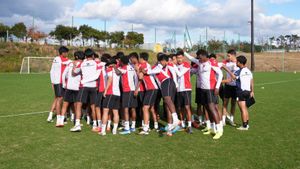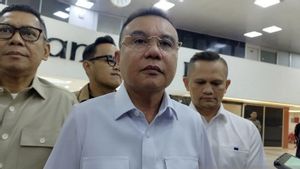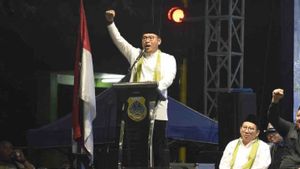JAKARTA - Indonesia's disappappable stance on United Nations Resolution on Responsibility to Protect (R2P) remains a topic of discussion. Many people regret that attitude came out when the Israeli-Palestinian conflict raged. Although later the government clarified that what was rejected was not the substance but the procedure of discussion. From this incident, many people hope that through R2P, the international community including Indonesia can suppress Israeli action. Could that be the case?
Before answering that question, we need to understand what Responsibility to Protect (R2P) means or the obligation to protect people from genocide, ethnic cleansing, war crimes and crimes against humanity. In addition, it is also important to know the background of the birth of the concept.
According to former Australian Foreign Minister Gareth Evans, who was involved in developing the R2P concept, the main idea of R2P came about after genocide was common in many places. One of the most conflicted was the conflict in Rwanda in the 1990s.
At that time the international community was unable to prevent 800,000 people from dying in such a short period of time. "They died without any intervention from the international community," Evans said in an interview with the Australian National University.
Evan was involved in the development of the R2P concept after the then UN Secretary-General, Kofi Annan, challenged the participants of the UN General Assembly to find a way out of a humanitarian issue in a country. "If the idea of humanitarian intervention is a terrible attack on the sovereignty of the country that we cannot contemplate, how do we respond as the international community to the horrific atrocities we have seen in Rwanda, Bosnia, Kosovo," Evans said, impersonating Annan.
Then The International Committee on Intervention and State Sovereignty or the International Committee for State Intervention and Sovereignty developed the R2P concept during 2001. R2P was adopted unanimously in 2005 at the UN World Summit and Indonesia was among the countries supporting it.
The ethical principle of R2P is arguably the development of international norms underpinning humanitarian intervention against a country. According to Kofi Annan state sovereignty means the responsibility of protecting his country from crimes of humanity.
If a country's government fails to perform this obligation, then Annan said the international community will take over that obligation, which means to intervene. "Sovereignty must be understood as conditional (not absolute) as long as the government respects the human rights of its citizens," Annan wrote in Intervention: A Life in War and Peace (2012).
Humanitarian interventions by both individual and multilateral countries aim to defend the noble values agreed upon together, namely human rights. The international organ in this case the UN Security Council (DK) acts like a law enforcement force that keeps international rules and norms in compliance. Violation of international norms is tantamount to threatening world peace and security. Therefore punishing the offender is a legitimate thing. Sanctions are justified in order to realize the common good.

One example of R2P is when Libya was plagued by conflict in 2011. The French, British and United States coalition intervened in Libya in March 2011. They argue this was done to protect the human rights of Libyan civilians from the regime of Moammar Gaddafi.
But in the realm of politics, the category of good or bad actions is certainly very subjective. In fact, it is the most powerful party that plays a big role in creating this bad good categorization.
The intervention was not without debate. Because some say, the actions of the coalition is trying to replace the Gaddafi regime that is considered unfriendly to western countries. The US found that momentum when Libya was engulfed in a protracted political revolution by western-backed rebels.
Democratization did not go as smoothly as in Tunisia and Egypt where anti-government protesters succeeded in overthrowing the regimes of Ben Ali and Mubarak. Instead of retreating, Gaddafi violently denied anti-government groups.
This situation forced the UNSc to take decisive steps. Three permanent members (Britain, France, and the United States) minus Russia and China who took the decision abstained to issue a resolution to roll out military operations against Libya. The mission is one: to save civilians who were victims of the oppression of the Gaddafi regime.
Mohamad Rosyidin, a lecturer at Diponegoro University in his paper in the Journal of Global Strategies (2016) called humanitarian intervention in Libya a paradox. Coalition strikes on the country resulted in civilian casualties.
For example, on March 20, 2011, a NATO attack killed 48 Libyan civilians. "The military offensive proves that the motivations of coalition forces are no longer humanitarian, but political. After NATO took over the attack, civilian casualties continued to fall," Rosyidin wrote.

Another proof that the Libyan attack was not humanitarian-motivated was that NATO rejected a negotiating offer from Libyan leader Moammar Gaddafi. NATO doubts the credibility of the peace deal.
"The western rejection can be categorized as a waiver of peace efforts. For western countries, peace efforts are useless if Gaddafi has not been successfully overthrown and replaced with a democratic regime," Rosyidin said.
In concept R2P is considered good and it is necessary to exist because it can provide a basis for genocide prevention interventions. But in practice, R2P is considered a select cut. Then is it possible that this concept is used to intervene in R2P? To answer the question VOI contacted lecturer of international relations at the University of Indonesia, Broto Wardoyo.
Can it put pressure on Israel?In the context of international relations according to Broto the important thing to question from the Israeli-Palestinian conflict, is whether the UN Security Council (DK) can or will issue a resolution to pressure Israel. "Will dk for example deploy troops or international ovserver? If in the DK it depends on the same five permanent members (Uk, France, US, China, Russia). And it looks like the U.S. won't want to pass a resolution that put pressure on Israel."
"So the political reality is a bit difficult. Because we're talking mandates," Broto said.
In addition, according to Broto when using the R2P argument there will be problems because it is seen as an intervention. "That's going to be hard. Because R2P is related to domestic issues. There is violence within the country."
Actually the international community's push towards Israel is not nothing. It's just that when viewed from the already, according to Broto "Israel has a tendency to ignore it. There used to be an Israeli Prime Minister who was required to be taken to the International Court of Justice and they were relaxed."
Why this conflict is difficult to find the meeting point according to Broto is because Israel also feels the right to defend itself. "So what they do is perceived as self-defense."
So according to Broto this conflict can only be resolved through negotiations. "But the negotiations have been done for decades but that's it. For Palestine also does not have the equivalent of Israel. That means there has to be a breakthrough there," Broto said.
Other BERNAS
The English, Chinese, Japanese, Arabic, and French versions are automatically generated by the AI. So there may still be inaccuracies in translating, please always see Indonesian as our main language. (system supported by DigitalSiber.id)









